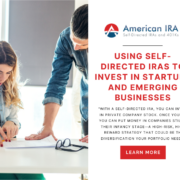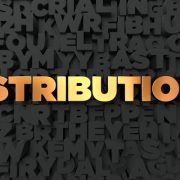Should I Do A Rollover Into a Self-Directed IRA?
 As with most questions related to retirement income planning, the answer is, “it depends.”
As with most questions related to retirement income planning, the answer is, “it depends.”
Before we deal with issues specific to Self-Directed IRAs, let’s look at how the rules apply to ordinary, conventional rollovers to IRAs, whether we’re talking about traditional IRAs or Roth IRAs.
What happens to fees?
If you’re coming from a large employer with thousands of people in its 401(k) plan, and you are considering rolling a balance over to an individual account such as an IRA, you may wind up paying higher fees. Indeed, as we’ll discuss below, high IRA fees are an important reason why many of our clients choose to self-direct their retirement investments, and why they choose American IRA, LLC!)
Why are fees lower in large 401(k)s? Because large plans are able to take advantage of economies of scale that aren’t available in most IRAs. They can command institutional pricing from mutual fund companies, for example – and good HR people aren’t shy about using that leverage to get a good deal for their plan participants. Indeed, it’s what they’re supposed to do.
 Now, it may be worth it, especially if you don’t like the options your company selects for you, and especially if you are interested in using self-directed strategies. And it may be worth it if your 401(k) is small or of low quality and they have not negotiated a favorable fee structure for their plan participants.
Now, it may be worth it, especially if you don’t like the options your company selects for you, and especially if you are interested in using self-directed strategies. And it may be worth it if your 401(k) is small or of low quality and they have not negotiated a favorable fee structure for their plan participants.
But do not underestimate the importance of fees. Mutual fund expense ratios add up over time, and if you’re not careful.
The American IRA, LLC Advantage
One enormous advantage of working with American IRA, LLC is our fee structure. We don’t charge a set percentage of assets, which can cost thousands every ear on large 401(k) or IRA accounts. Instead, we charge a simple flat-rate per transaction. That means rather than paying 1 percent of your assets to a money manager or mutual fund company every year, you just pay a few dollars or tens of dollars for a specific transaction or service – which you can identify in advance just by looking at the menu of services.
For most clients, that amounts to significant savings of thousands of dollars every year.
What happens to withdrawal availability?
 If you need the money soon, rolling 401(k) assets over to an IRA could impact your ability to take distributions. That’s because while you have to wait until you are age 59½ or older to make penalty-free distributions from IRAs (except in specific ‘hardship’ circumstances), the law allows workers who have left the company that sponsors their 401(k) to make penalty-free withdrawals starting at age 55.
If you need the money soon, rolling 401(k) assets over to an IRA could impact your ability to take distributions. That’s because while you have to wait until you are age 59½ or older to make penalty-free distributions from IRAs (except in specific ‘hardship’ circumstances), the law allows workers who have left the company that sponsors their 401(k) to make penalty-free withdrawals starting at age 55.
However, IRAs have broader exceptions to these penalties for ‘hardship withdrawals’ than 401(k) plan rules, do. And you can make penalty-free distributions from either one provided you do so as a series of ‘substantially equal periodic withdrawals,’ as specified under U.S. Code Section 72(t).
Do you have highly-appreciated company stock?
In some circumstances, rolling this from a 401(k) into an IRA could generate an immediate income tax liability on the appreciation. On the other hand, doing an in-kind rollover, moving the stock itself into a new account, could qualify you for the more favorable long term capital gains rate. Speak with your tax planner for specifics.
[tweetthis twitter_handles=”@iraexpert” hidden_hashtags=”#SelfDirectedIRA”]Deal with issues specific to Self-Directed IRAs, let’s look at how…[/tweetthis]
American IRA, LLC is a nationally-recognized leader in self-directed IRA account administration and rollover transactions. For more information, or to schedule a free consultation, visit us at www.americanIRA.com, or call us at 866-7500-472(IRA).
We look forward to serving you.
Images by: presentermedia.com




